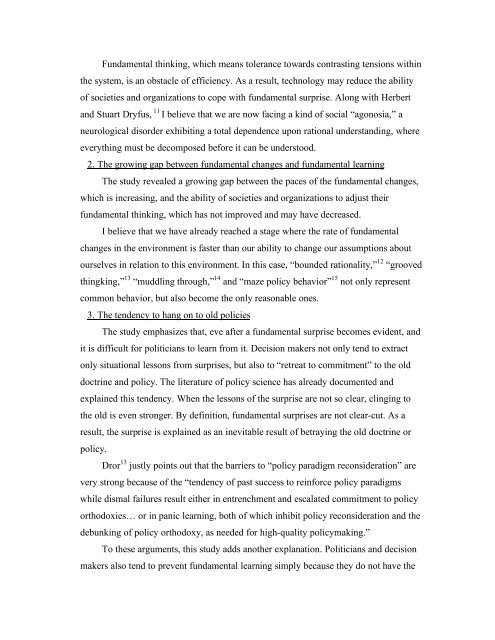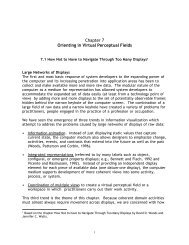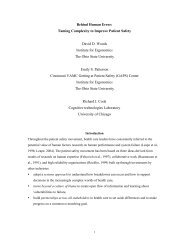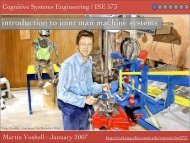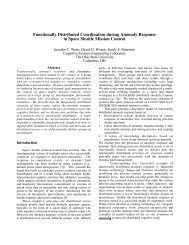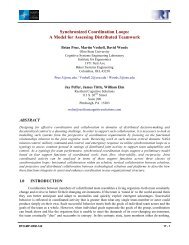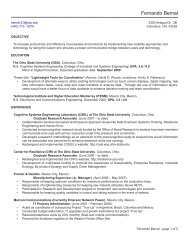Fundamental Surprises Zvi Lanir Decision Research 1201 Oak ...
Fundamental Surprises Zvi Lanir Decision Research 1201 Oak ...
Fundamental Surprises Zvi Lanir Decision Research 1201 Oak ...
- No tags were found...
You also want an ePaper? Increase the reach of your titles
YUMPU automatically turns print PDFs into web optimized ePapers that Google loves.
<strong>Fundamental</strong> thinking, which means tolerance towards contrasting tensions within<br />
the system, is an obstacle of efficiency. As a result, technology may reduce the ability<br />
of societies and organizations to cope with fundamental surprise. Along with Herbert<br />
and Stuart Dryfus, 11 I believe that we are now facing a kind of social “agonosia,” a<br />
neurological disorder exhibiting a total dependence upon rational understanding, where<br />
everything must be decomposed before it can be understood.<br />
2. The growing gap between fundamental changes and fundamental learning<br />
The study revealed a growing gap between the paces of the fundamental changes,<br />
which is increasing, and the ability of societies and organizations to adjust their<br />
fundamental thinking, which has not improved and may have decreased.<br />
I believe that we have already reached a stage where the rate of fundamental<br />
changes in the environment is faster than our ability to change our assumptions about<br />
ourselves in relation to this environment. In this case, “bounded rationality,” 12 “grooved<br />
thingking,” 13 “muddling through,” 14 and “maze policy behavior” 15 not only represent<br />
common behavior, but also become the only reasonable ones.<br />
3. The tendency to hang on to old policies<br />
The study emphasizes that, eve after a fundamental surprise becomes evident, and<br />
it is difficult for politicians to learn from it. <strong>Decision</strong> makers not only tend to extract<br />
only situational lessons from surprises, but also to “retreat to commitment” to the old<br />
doctrine and policy. The literature of policy science has already documented and<br />
explained this tendency. When the lessons of the surprise are not so clear, clinging to<br />
the old is even stronger. By definition, fundamental surprises are not clear-cut. As a<br />
result, the surprise is explained as an inevitable result of betraying the old doctrine or<br />
policy.<br />
Dror 13 justly points out that the barriers to “policy paradigm reconsideration” are<br />
very strong because of the “tendency of past success to reinforce policy paradigms<br />
while dismal failures result either in entrenchment and escalated commitment to policy<br />
orthodoxies… or in panic learning, both of which inhibit policy reconsideration and the<br />
debunking of policy orthodoxy, as needed for high-quality policymaking.”<br />
To these arguments, this study adds another explanation. Politicians and decision<br />
makers also tend to prevent fundamental learning simply because they do not have the


